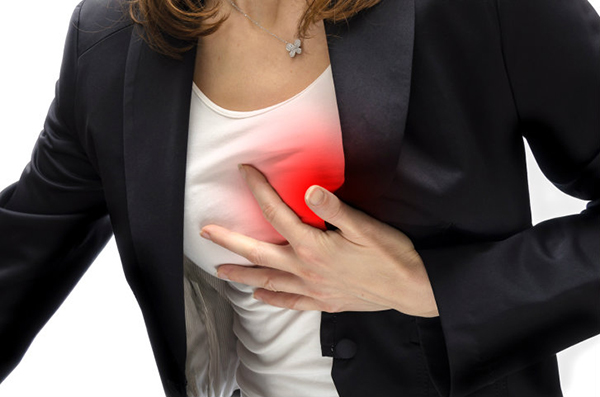Health Tips
Heart Disease

Don’t let your heart hurt until it is too late
1.) The human heart has four chambers: two upper chambers (the atria) and two lower ones (the ventricles)
2.) The heart beats about 100,000 times per day and pump five or six quarts of blood each minute or about 2,000 gallons per day.
3.) The pulmonary arteries carry deoxygenated blood to the lungs, where they release carbon dioxide and pick up oxygen during respiration.
The oxygenated blood then leaves the lungs through pulmonary veins, which return it to the left heart, completing the pulmonary cycle. This blood then enters the left atrium, which pumps it through the bicuspid valve into the left ventricle. The blood is then distributed to the body through the systemic circulation before returning again to the pulmonary circulation.
Disease of the cardiovascular system
Valvular Heart Disease
Symptoms of heart valve problems, which are often the result of rheumatic heart disease, can include: chest pain, excessive fatigue, heart palpitations, a thumping sensation in the chest, shortness of breath, and swollen ankles, wrists or stomach. Diagnosing by Echocardiography can tell heart abnormalities.
Acute Myocardial Infarction
Blood pressure that is not treated properly can lead to Cardiac muscle abnormalities
Ischemic Heart Disease
Is a condition in which plaque and fat builds up inside the coronary arteries. This limits the flow of oxygen-rich blood to your heart muscle. Mostly found this disease on old people due to high levels of fats and cholesterol in the blood and high blood pressure
Coronary Artery Disease
Plague buildup in your coronary arteries leads to blockages. The arteries, which start out smooth and elastic, become narrow and rigid, restricting blood flow to the heart.
- Exercise Stress Tess
- Echocardiography
Symtoms
Chest Pain
Discomfort caused when your heart muscle does not get enough oxygen-rich blood. It may feel like pressure or squeezing in your chest. The discomfort also can occur in your shoulders, arms, neck, jaw, or back. You may need emergency medical treatment to try to prevent a heart attack if you have chest pain.
High Blood Pressure
High blood pressure usually found in older people due to atherosclerosis and renal infarction. Reducing blood pressure may reduce the risk of Paralysis and reduce the risk of acute myocardial infarction. In addition, blood pressure in adults should not be over than 140/90 mm Hg.
Cardiac Arrhythmia
Cardiac Arrhythmia is usually found in Atrial Fibrillation (AF). It is also found in patients who have lung disease, Ischemic Heart Disease, Valvular Heart Disease, Acute Myocardial Infarction, high blood pressure disease, and in older people. For patients with irregular heartbeat, it may lead to cause emboli (blood clot). This causes an Ischemic Stroke or Transient Ischemic Attack.
Risk factors in Heart diseases
Uncontrollable factors
1. men have more risks than women
2. Genetics
3. People age over 65 years are risk to heart disease
Controllable factors
1. Smoking and drinking alcohol
2. High blood pressure disease
3. High Cholesterol
4. Obesity
5. Lack of exercises
6. Lack of adequate nutrition
7. Diabetes
8. stress and anger